Our Climate – a Short Story About a Long Period of Time
The period of time covered by the upper graph starts at the end of the cretaceous age, covers the entire modern era of Earth’s history and reaches into the near future on different time scales. The coloured lines of the temperature values were determined from natural climate archives, ocean observations and model simulations. Surface temperature is plotted as the difference from the average for the period 1960-1990. The globally averaged temperature during this period was 14° Celsius.
The term weather refers to the perceptible, short-term state of the atmosphere at a particular location on the Earth's surface. Climate, on the other hand, is a state of atmospheric processes at a location averaged over a longer period of time, for example the temperature for a month averaged over decades, which is not the same in every year.
These fluctuations around the average climate occur due to external influences such as variations in solar radiation or strong volcanic eruptions, but also due to internal interactions such as the heat exchange between the ocean and the atmosphere. This causes natural climate fluctuations that can happen on timescales ranging from a few years (as in the El Niño phenomenon) to many millennia (as in ice ages). On even longer geological timescales, the changing distribution of land and sea or climate disasters caused by impacts of celestial bodies also play a role.
Even a difference of a few degrees can have a significant impact on life on the planet: The last time northern Europe was glaciated, it was on average only 4 degrees Celsius colder - but the world was a fundamentally different place. This allows predictions to be made about what could happen with a warming of this magnitude.


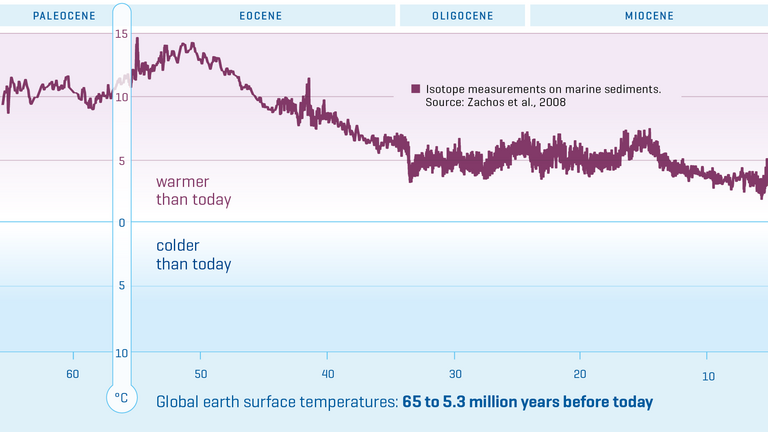
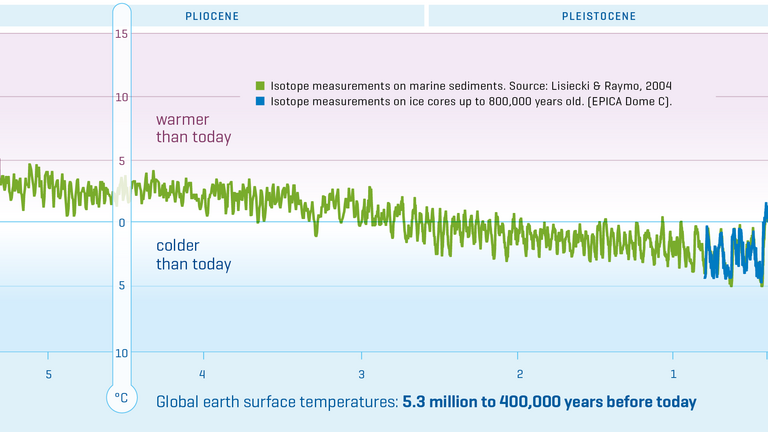
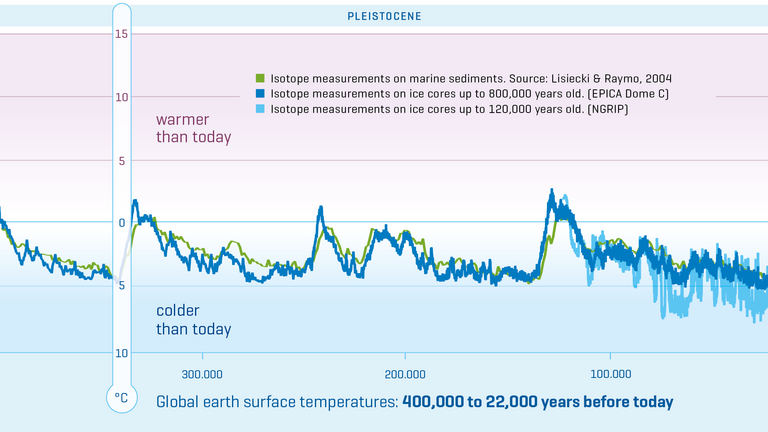
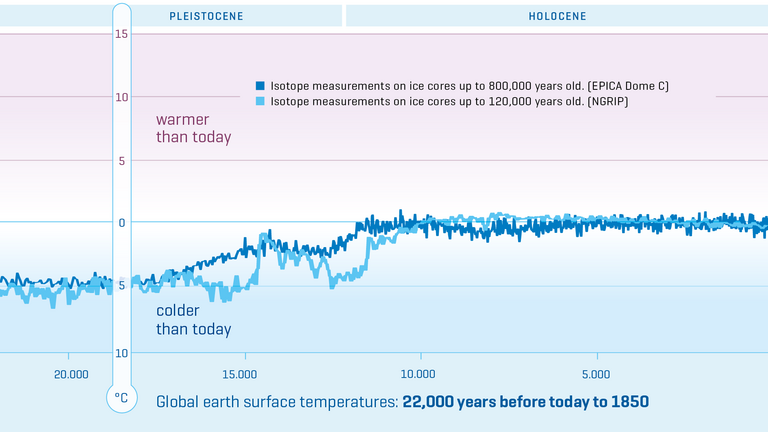
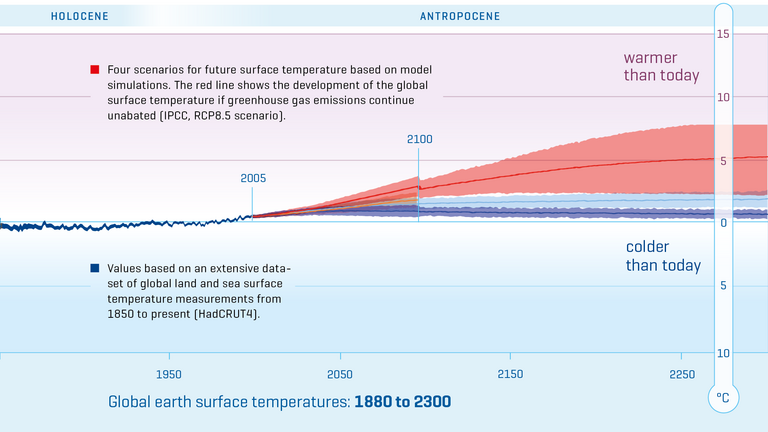

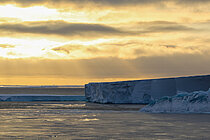
![[Translate to English:] A large research vessel at sea, photographed from above at an angle](/fileadmin/_processed_/9/5/csm_sonne_SO252_M2_3401_abf9192642.jpg)
